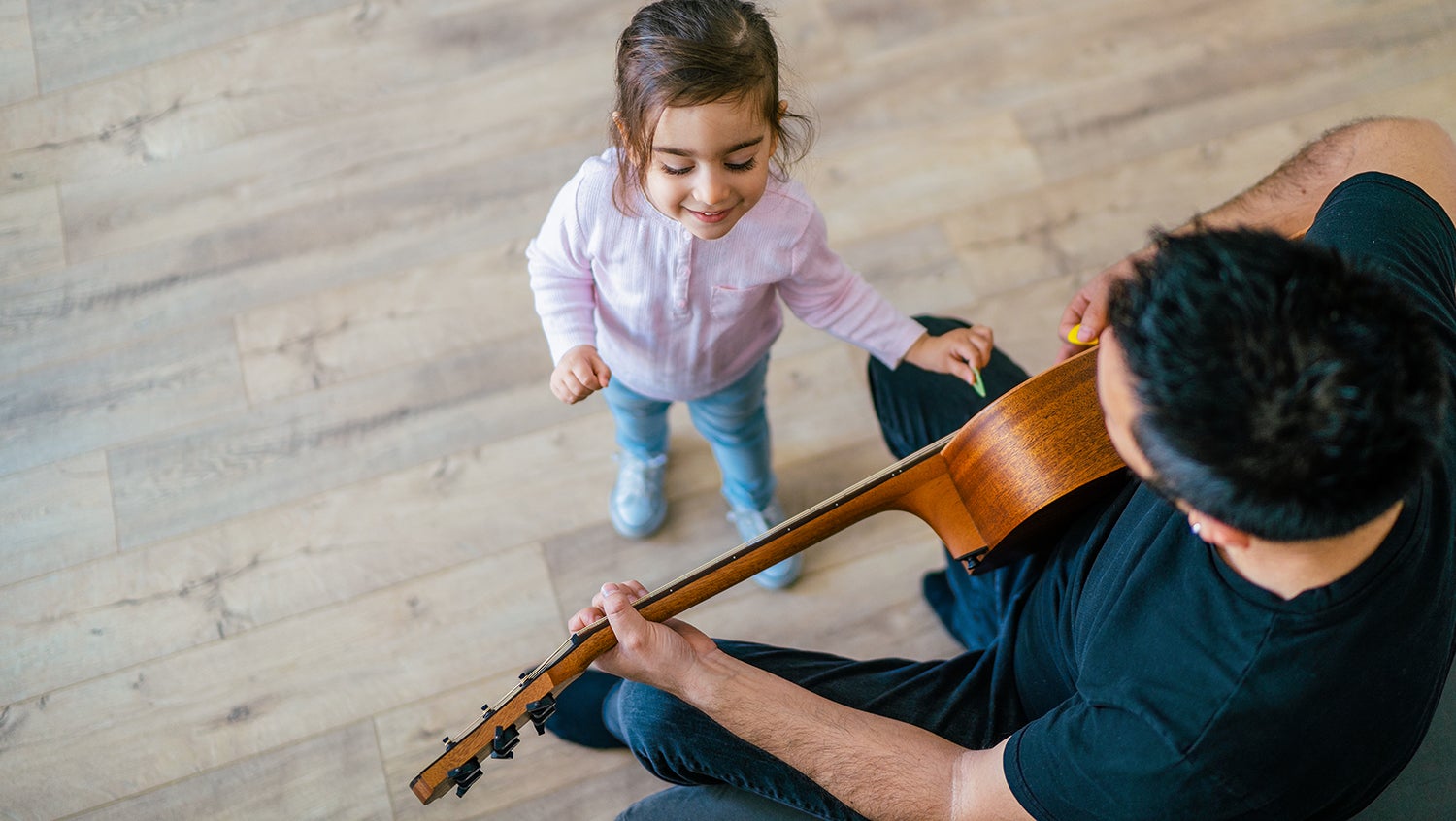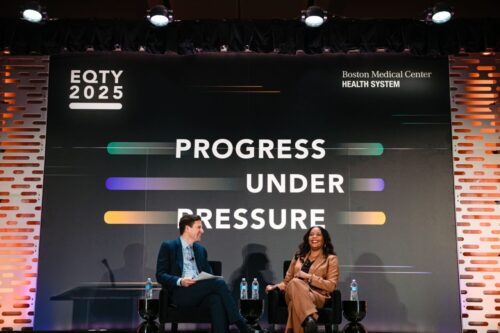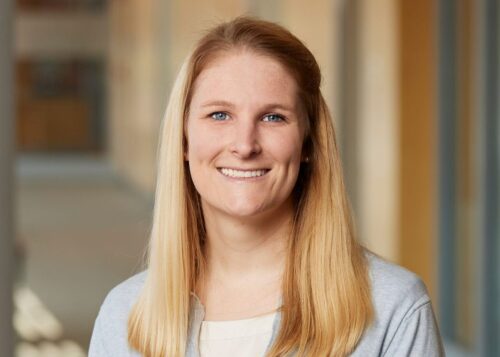
Getty Images
A clinic-based music program gives careful consideration to clients’ unique needs, enabling better access to developmental enrichment opportunities for children and families.
Children gather in a circle. Some sit cross-legged, clutching miniature instruments. Others jump from side to side, clapping their hands to a beat. Beside them, parents and caregivers smile and sing, taking cues from a music teacher, who guides the class from song to song.
At first glance, the Music Project may seem just like the hundreds of children’s music play groups spread across the country. However, the program, housed within the department of pediatrics at Boston Medical Center (BMC), has a defining feature: its emphasis on equity.
Most of the young participants in the Music Project come from low-income families, a detail that not only affects but informs the group sessions. Unlike more traditional, community-based music programs, which typically require regular attendance and fees of tens to hundreds of dollars per session, access to The Music Project is available at no cost to the hospital’s visitors and their families. The weekly program requires no advance registration, allowing added flexibility for families with changing schedules or competing priorities. And the classes are often multilingual, taught by instructors from diverse cultural backgrounds.
Pediatrician Jessica Brick established the Music Project to increase access to childhood development activities for her patients at BMC. Inspiration struck after taking a similar class with her own child, where she discovered just how developmentally enriching the experience was.
“I wanted my patients to be able to have that experience, too,” says Brick.
Equitable access to developmental opportunity
Studies have revealed the benefits of music play groups in varying populations, including strengthening speech and language development and emotional regulation in young children. Among families, parent-child music interventions have been shown to increase communication and responsiveness from children, while improving parent-child engagement and parental mental health.
Activities like music programs that support healthy early childhood development are particularly important for children from low-income families. In the United States, first-year high school students from low-income backgrounds lag half a decade behind their higher-income peers in terms of literacy levels. Studies show that this achievement gap begins before students even enter kindergarten, with nearly 50% of 5-year-old children from low-income families failing to meet school readiness benchmarks. School readiness rates between students of color and their white peers also show marked gaps, drawing attention to the need for early intervention among these groups in particular.
“The bond between parent and child is just inextricably linked with a child’s wellbeing and their development,” says Brick, who realized the need for the project when she learned that many parents didn’t have access to daycare and often spent long hours with their children at home, sometimes without really knowing how to engage them.
Families are looking for enriching activities, but without the resources to do them.
“Families can struggle to find healthy ways to interact with a child that’s not yet verbal. They may revert to a lot of screen time, things that we know are not developmentally enriching,” she says. “They’re looking for programs or things to do, but without any resources to do them.”
Brick’s music classes offer the opportunity for family bonding in a supportive, guided environment. Staffed by a primary care provider, a music teacher, Child Life specialist, and volunteers who help with patient navigation, the Music Project offers weekly group classes at no cost to participants. The sessions are aimed at promoting parent-child interaction and early childhood development for children age 0–4 years and their families.
Removing cost barriers
Several Boston-based music groups also offer services to area children. One local music center, for example, hosts group music sessions for children under age 7 throughout the summer. Four sessions come to $150, or approximately $38 per class. Other private music schools in the area charge over $50 per half-hour lesson for music therapy programs.
For a family with limited resources who may already be juggling payments for medications, rent, and food, these prices keep the classes out of reach.
“I wouldn’t mind paying for music class if it weren’t so much money,” says Brenda Mugisa, a mother who visits BMC with her two young daughters. A year ago, Brick invited the family to join the free music program, and they’ve been in regular attendance since. Mugisa has already noticed changes to her children’s development, especially with her 3-year-old daughter, Kenzie.
“Kenzie was about 14 months when the program started,” says Mugisa. “It was good to get out of the house and get her to interact with other children, because she doesn’t go to daycare.”
Now, says Mugisa, her daughter is more engaged. She’s actively interested in nursery rhymes, is friendlier and more confident at the playground, and shares respectfully.
While the anecdotal evidence is encouraging, leaders of the Music Program hope to begin more formal research into the program’s effectiveness and its impact on participants later this year. Demonstrating positive outcomes could open the door to expand the program and reach more families, says Brick.


